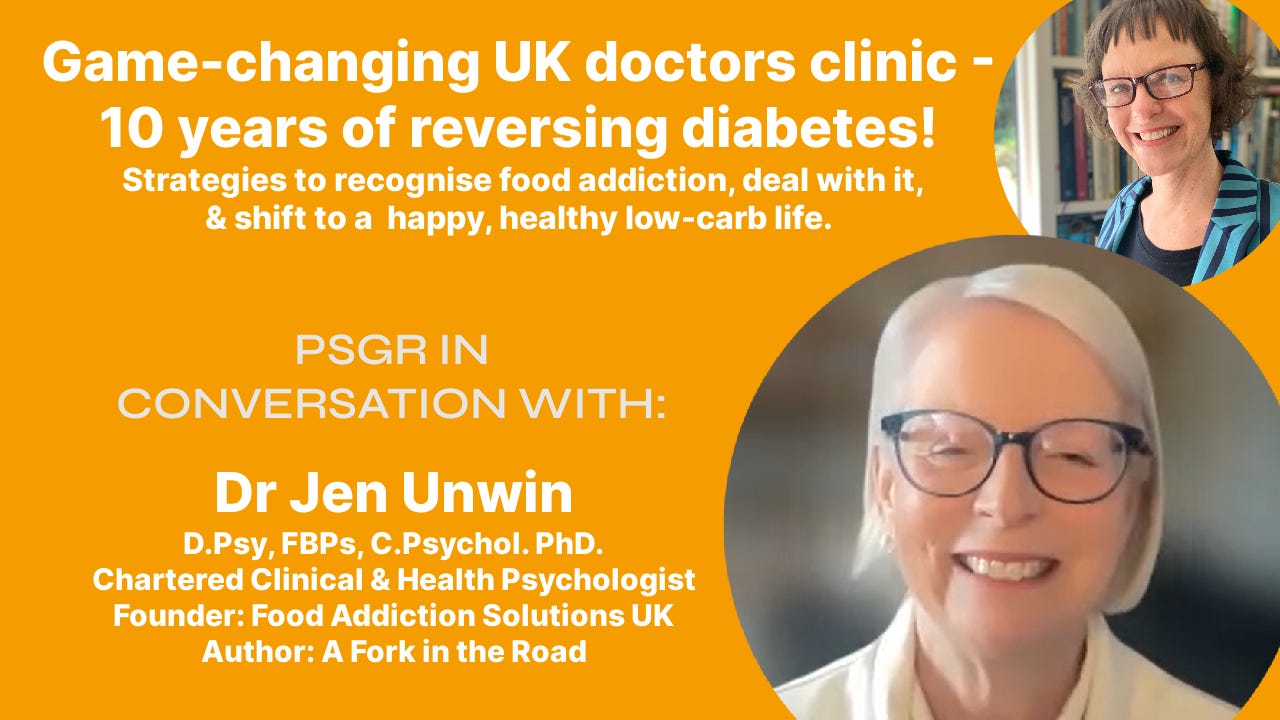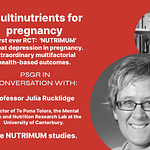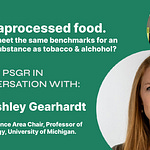Dr Jen Unwin, Chartered Clinical & Health Psychologist - 30 years UK NHS. D.Psy, FBPs, C.Psychol. PhD.
Co-founder: Food Addiction Solutions (FAS) UK.
International Food Addiction Consensus Conference, IFACC 2024, was held in London on 17th May 2024 to celebrate the Consensus reached between 37 out of 40 international researchers, academics and clinicians, with 250 delegates and 350 Live-Steam watchers around the world. (A minimum donation of GBP25 is required to access the speaker presentations and copies of their slides.)
Original interview on YouTube (with scientific papers on-screen):
[1] Game-changing UK doctors' clinic. 10 years of reversing diabetes!
[2] If we don't recognise food addiction, how can we treat it?
Key quotes:
It is now thoroughly embedded in the practice and all the partners are on board.
There’s lots of data about lots of patients over 11 years so it’s a unique data-set really, internationally,
People were saying this is dangerous what you are doing, cholesterol is going to go through the roof, you’re going to give them a heart attack. The dietician at the time who was assigned to the practice just left. She didn’t want anything to do with what we were doing at all.
On ultraprocessed food:
The environment we live in is crazy triggering because its everywhere.
On the multifactorial health benefit:
That’s drugs for diabetes alone that people are coming off. People are coming off antidepressants, antihypertensives, - lots of other drugs - and also, we’ve never been able to quantify this, people are healthier. So they’re not coming back to the practice for other things. They’re getting on with their lives. There is a really big economic impact if this was replicated.
The main message coming out of this latest paper is get in there early.
On informed consent:
Dr David Unwin
He’s up in arms about the fact that if you’re going to have a little wart or something taken off you have informed consent. Any sort of procedure like that. What are the pros and what are the risks. But you can start somebody on life-long medication for diabetes or antidepressants or any of these actually quite - that’s actually quite a serious decision, but there isn’t time given to properly informed consent, and there really, really should be because there are risks with any medication and people might want to take an alternative course.
On the relationship of diabetes with food addiction:
People with food addiction are 7x more likely to be diabetic.
There was one study that showed that 70% of people with Type 2 diabetes have a food addiction problem.
Consensus on food addiction:
The next big push is getting this condition recognised by the World Health Organisation or the American Psychiatric Association as a legitimate condition worthy of treatment, research and screening.’
















Share this post